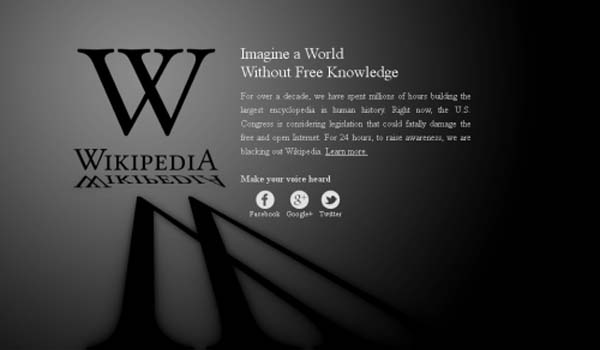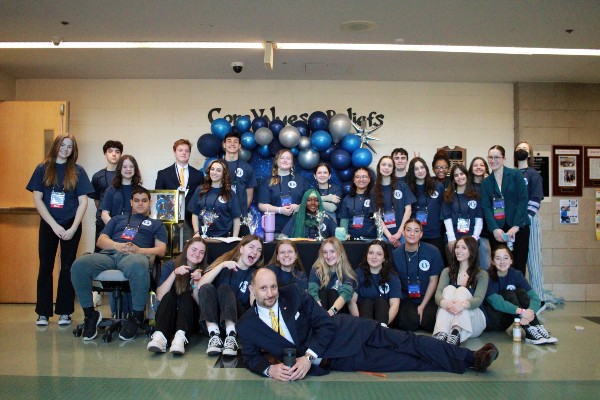By Lindsay Hawthorne
Something unheard of is happening: the end of the world may be near. Wikipedia is blacked out!
This major site has never been unavailable for any amount of time since its founding.
Now, the site is in the middle of a 24 hour blackout. Those trying to search anything on Wikipedia are faced with a black page with the Wikipedia symbol (W) and the slogan “Imagine a World without Free Knowledge”. These are accompanied by a notice saying that the site will be blacked out for 24 hours, the duration of January 18th, to raise awareness about new potential legislation that may restrict the right to free speech on the internet.
Even the Google homepage reflects the significance of this blackout: the Google letters that are designed specifically for holidays, such as the red, white, and blue letters with Dr. Martin Luther King Jr.’s face in them that were featured for his holiday on Monday, are now replaced by a black rectangle to signify the blackout, though Google is still up and running.
That the “largest encyclopedia in the world” (Wikipedia blackout page) is unavailable is quite an inconvenience for some people, who are finding ways around it.
Wikipedia is still available on cell phones, for example, as people can hit “stop” before the blackout page loads.
However, the site is still unavailable to millions of people.
The site’s founder, Jimmy Wales, said that the site is down in order to protest proposed US anti-piracy laws. The stop online piracy act, or SOPA, is thought by many, including Wales, to restrict the right of freedom of speech.
The other bill being protested is the Preventing Real Online Threats to Economic Creativity and Theft of Intellectual Property Act, or the Protect IP Act, also known as PIPA.
These bills would potentially stop copyright infringement committed by foreign websites, but many people feel that the way the bills go about it infringes on their rights.
SOPA, the bill focused on stopping online trafficking in copyrighted intellectual property counterfeit goods, could result in some illegal websites being barred from search engines and keep them from doing business with advertising companies.
Whether these bills are a helpful way to protect copyright information or a fatal infringement on rights remains to be seen.



















